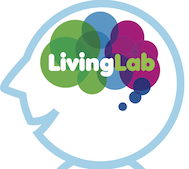Our Research
Here in the Social Cognitive Development lab we explore how children (from infancy through early teenage years) establish preferences for and beliefs about themselves and other people. Through our research we hope to understand how preferences for and stereotypes about people are acquired and change across development on both a conscious and an unconscious level of processing. Collectively, our research aims to understand when, why and how children reason about a person in terms of their social group membership (e.g., gender, race, occupation) rather than by their individual merits alone. This work also focuses on the extent to which a child's preference for, stereotypes about, and treatment of another is shaped by how similar that person appears to the self (i.e., "how like me" that person appears).
Our research explores such topics as:
1. Children's understanding of social status and social hierarchy
2. The role of language in shaping intergroup biases (e.g., categorization, evaluation and stereotyping)
3. Cognitive and cultural foundations of intergroup bias (e.g., contrasting individuals with different social and cultural environments across development)
4. The unconscious nature of intergroup bias (e.g., implicit attitudes and stereotypes)
5. Strategies for changing implicit (and explicit) bias in early childhood (e.g., changing implicit race and gender stereotypes about academic ability)
6. The development of memory biases in intergroup contexts
7. The formation of gender stereotypes about intelligence and academic ability and the influence of these stereotypes on identity, academic performance and career aspirations.
Each of our studies is designed to be maximally fun and engaging for children. Our studies occur in one of two forms - either as a puppet show in which children observe interactions between different puppets and are asked questions about what they observed. Or, as a computer game in which children are presented with different vignettes or animations and again asked questions about what they observed. Children are always together with their parents and following completion of our study, children receive a small souvenir.


Our research takes place across two locations: at the Social Cognitive Development Lab, in the Douglas Kenny Building at UBC’s Vancouver Campus, and at the Living Lab, in Science World at TELUS World of Science! To contact us at the Social Cognitive Development Lab or the Living Lab, find out more at our Contact Us page!
Our lab research also contribues to the consortium on Engendering Success in STEM.



